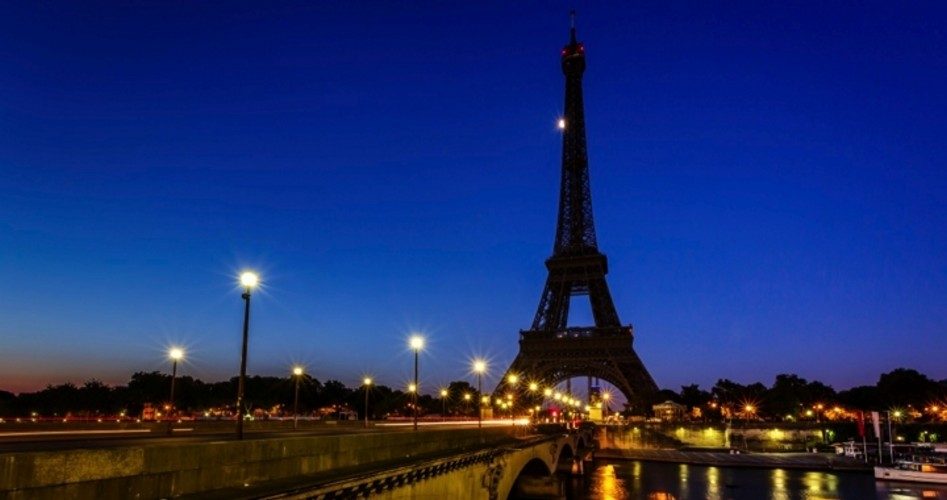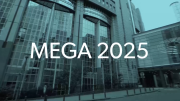
The OECD — the Organization for Economic Cooperation and Development — put the best face possible on France’s declining economy in its just-released forecast. The report was full of optimism about the future but admitted that the present reality is discouraging. Note the use of words “projected” and “should” in its opening paragraph:
Economic growth is projected to gain momentum in 2015 and 2016. Lower energy prices, improving financial conditions, slowing fiscal consolidation, strengthening external demand and a pro-competitive reform agenda should underpin an increase in consumption and export volumes.
But the reality is far different, said the OECD:
Weak business confidence is still weighing on investment, implying a delayed pick-up in hiring and only a marginal decline in unemployment…. [Government] revenues are set to decline, notably social security contributions and corporate taxes…. Investment in manufacturing and equipment … has been erratic and weak, hardly compensating for the depreciation of existing, and ageing, capital … [putting] France’s competitiveness at risk.
The tipping point of France’s decline might properly be placed on the implementation of a campaign promise made by President François Hollande in 2012 to immediately create 60,000 new teachers’ jobs along with another 150,000 public-service jobs. However, because he didn’t provide any plan on how to pay for them, the results of such madness became obvious. The trickle of citizens leaving the country (26,000 in 2010 and more than 35,000 in 2011) has now turned into a flood.
In the last two years, Hollande’s government has announced an astonishing 84 new taxes, mostly on the lower and middle classes, in a continuing and failing attempt to keep up with the spending. In 2014 France spent nearly 60 percent of its gross domestic product on its “social protection” programs.
In 2013, when Hollande announced a 75-percent “supertax” on the rich, Bernard Arnault, chairman of the French multinational luxury goods conglomerate LVMH (think Louis Vuitton, Moet Hennessy, and Christian Dior) and the richest man in France, responded that he would be seeking tax residency in Belgium. For that he got the boot from the hard-left Liberation newspaper: “Get lost, you rich b*****d!”
The French anti-capitalist mentality was evidenced when layoffs were announced at the Goodyear plant in northern France in January 2014. Instead of protesting peacefully, union thugs invaded the offices and kidnapped two of Goodyear’s managers to hold them hostage for the duration of the strike.
When France’s minister of industrial renewal, a hard-left member of the Socialist Party, Arnaud Montebourg, asked the president of Titan International (a maker of farm and off-road tires in Quincy, Illinois) to consider buying the Goodyear plant to avoid losing some 1,250 workers, Titan president Maurice Taylor told him to take a hike. Taylor, known as “Grizzly” for his non-nonsense approach to building a successful business, wrote:
The French workforce gets paid high wages but works only three hours. They get one hour for breaks and lunch, talk for three and work for three. I told this to the French union workers to their faces [while visiting the Goodyear plant]. They told me that’s the French way. How stupid do you think we are? Titan is going to buy a Chinese tire company or an Indian one … and ship all the tires France needs. You can keep your so-called workers.
The welfare state in France has created not only a country where almost a quarter of all workers are employed by some branch of government, but a self-destructive anti-capitalist mentality as well. As journalist Anne-Elisabeth Moutet, writing in the British paper The Telegraph, noted:
In [France] the general attitude in the media, on television, etc., is that bosses are wrong, companies are wrong, and creating [a] new business is dubious at best and dishonest at worst.
That “social protectionist” scheme now covers every living soul in France with every conceivable sort of welfare, granting everyone a “right” to a minimum standard of living regardless of their own ability or willingness to contribute to it. There are old-age pensions, universal health insurance, and even a “social minima” coverage to “fight against the risk of social exclusion.”
When Moutet, who lives in France and is seeing its diminishment with her own eyes, wrote about its decline, she noted that the public disparagement of wealth is so strong that Rolls-Royce sold not a single automobile in the entire country in 2013.
Moutet tells of a good friend, a baker, who moved to London to get out from under the oppression of France. He told her:
It’s not only that people don’t like to be treated like criminals just because they’re successful. But this uncertainty in every aspect of the tax system means it is impossible to do business: you don’t know what your future costs are, or your customer’s. You can’t buy, you can’t sell, you can’t hire, you can’t fire…. It was the constant sniping, the feeling that I had to apologize for everything I achieved, the jealousy, the unremitting gloom, the guilt heaped upon you at every turn.
Under that unremitting pressure from Marxists such as Hollande and Montebourg, France is turning itself into a third-world country. The brightest and the best, along with entrepreneurial capital and energy, are leaving the country, and leaving the country bereft of the very things it needs most.
A graduate of an Ivy League school and a former investment advisor, Bob is a regular contributor to The New American magazine and blogs frequently at www.LightFromTheRight.com, primarily on economics and politics.



